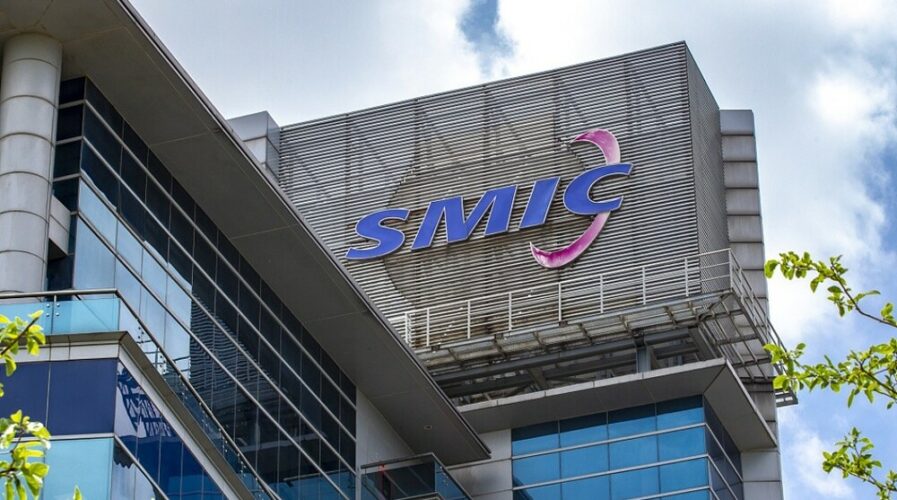
Despite US sanctions hurting revenue in 2023, SMIC remains resilient, forging ahead with 5nm node development.
Is China chipmaker SMIC beleaguered by resignations?
SMIC, the largest chipmaker in China, announced the resignation of its vice-chairman, Chiang Shang-yi, last week.
Chiang took the role in Semiconductor Manufacturing International Corp (SMIC) almost a year ago, amidst a leadership shuffle. According to SMIC, Chiang had resigned from his position and the board from Thursday onwards to spend more time with his family, reported Reuters.
Chiang was a former research director at Taiwan’s TSMC (Taiwan Semiconductor Manufacturing Company Limited) and left his position to join rival SMIC in mid-December of 2020.
Interestingly, his resignation comes two months after the Chinese chipmaker’s former chairman, Zhou Zixue, resigned on grounds of health reasons.
On top of that, three other members also resigned from the board, including co-chief executive officer Liang Mong Song, who had threatened to quit in December last year. He would remain in his executive role, however, said SMIC.
According to Reuters, these resignations were “not due to any disagreements with the board”. The company also doesn’t expect any “material impact” on its operations.
SMIC: A new hope for China?
SMIC is the largest contract chipmaker in China, considered the Chinese “equivalent” to Taiwan’s TSMC. It is backed by a state-affiliated chip fund and represents China’s hope for chip self-sufficiency.
China is dependent on TSMC, as well as chips from the west to power its massive consumer electronics market.
Due to the ongoing global chip shortage, tech giants globally have been scrambling to get their own chips, including Apple and Samsung. A primary method has been to design their own chips.
Similarly, a number of Chinese companies have heeded the government’s clarion call for chip self-sufficiency, with the latest being Oppo.
Last month, unlikely contender Alibaba also revealed what is possibly China’s most advanced chip, the Yitian 710.
A series of unfortunate events
With all that said, things have been complicated for the communist-ruled country for years. The ongoing US-China trade war and sanctions have impacted quite a number of Chinese tech giants such as Huawei.
SMIC is seen as Beijing’s golden ticket to produce advanced chips, in order to deal with the multiple sanctions by the US.
This was compounded by prior resignations by executives in SMIC, as well as a spate of further US restrictions on tech, citing national security concerns.
As if that’s not enough, the country is also wrangling with a chronic shortage of scientific and engineering talent within the semiconductor industry.
Furthermore, Chinese social media has expressed collective outrage at their largest chip exporter, Taiwan’s TSMC, who has agreed to provide the US with chip data.
Detractors believe such a move would jeopardize the country’s semiconductor goals, with experts reckoning that the US is making this move to target China so they may attain chip leadership.
The US claims this request for information was to understand the global chip shortage better, but China refuses to be placated.
What will this mean for China and SMIC, though?
According to CNN, shares of SMIC fell by four percent in Shanghai and Hong Kong last week, following a regulatory warning by the Shanghai Stock Exchange. It is unknown what the warning was about, though.
Despite these issues impeding the company’s plans for high-end chip making, its financial performance has been strong, with a rise of 22.6% for its third-quarter profit. This is purportedly boosted by increased demand for semiconductors due to the global chip shortage.
However, there may be a silver lining on the horizon, though, as the US has reportedly allowed the likes of Huawei and SMIC to purchase goods, despite their presence on the US trade blacklist.
Nevertheless, China remains steadfast in its goals for technological superiority and self-sufficiency, pledging to constantly improve its tech, including chipmaking and even quantum computing.
For SMIC, at least, they remain committed to investing in technology and expanding its production capabilities — recently investing US$8.87 billion to build a chip plant in Shanghai and a US$2.35 billion one in Shenzhen.
According to Bloomberg, SMIC executives last week said they were working on resolving shortages, ensuring expansions are on time, and accelerating licensing approval processes for output expansion equipment.
Co-CEO Zhao Haijun expects that SMIC will triple its current capacity in the next few years, working with suppliers to speed up procurement and delivery.
The TSMC rival also expects an 11 to 13 percent revenue increase from three months ago and a gross margin gain of about 35%.
Zhao expects that demand will continue to outpace supply throughout 2022, a sentiment shared by many industry players and watchers.
READ MORE
- 3 Steps to Successfully Automate Copilot for Microsoft 365 Implementation
- Trustworthy AI – the Promise of Enterprise-Friendly Generative Machine Learning with Dell and NVIDIA
- Strategies for Democratizing GenAI
- The criticality of endpoint management in cybersecurity and operations
- Ethical AI: The renewed importance of safeguarding data and customer privacy in Generative AI applications
